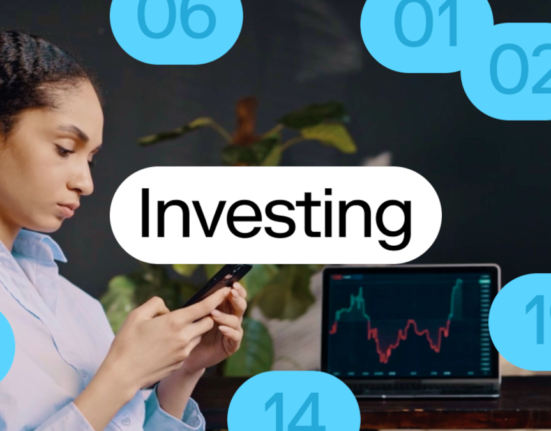They take concentrated bets, which runs counter to the diversification of an index fund. Going back to the 1993 letter, after pointing out the advantages of index funds to non-professional investors, Buffett wrote: “On the other hand, if you are a know-something investor, able to understand business economics and to find five to ten sensibly-priced companies that possess important long-term competitive advantages, conventional diversification makes no sense for you.” He went on to suggest that rather than diversifying further, such an investor might be best served by investing more in the “top choices,” or companies that are most easily understood and “present the least risk, along with the greatest profit potential.”
Buffett “has expounded over the years on the value not of diversifying but of concentration,” said Adam J. Mead, author of the book “The Complete Financial History of Berkshire Hathaway,” which details the full history of how Buffett transformed a textile manufacture into an insurance company and then a conglomerate. “You can look at Berkshire Hathaway’s history from Buffett’s tenure, 1965 through the present day, as a series of very large bets.”
For the wholly-owned businesses, Buffett tends to leave the management teams in place, trusting those experts to continue operating the units properly, and only stepping in if he needs to. This style also reduces expenses on the conglomerate level.
Insurance float
An insurance company collects premiums and invests them with the aim of covering any needed claim payouts and earning additional profit. Insurance underwriting is both a science and an art, as companies set premium rates at appropriate levels, when taking risk expectations and investment needs into account, while also considering what competitors are doing.
The premiums that an insurer can invest are called “float” by Berkshire’s management team. Buffett explained in his most recent letter that Berkshire’s float increased to $164 billion at the end of 2022 from $147 billion a year earlier, in part because of the acquisition of Allegheny Corp. Float isn’t reflected on the company’s balance sheet, because “it will eventually go to others,” as Buffett explained on page A-2 of Berkshire’s annual report for 2022.
Mead described the $164 billion in float as “better-than-free money that Berkshire gets to invest on its behalf” Even though the money isn’t Berkshire’s, “because of its revolving nature, it functions like equity capital,” he said.
In the annual report Buffett described an advantage to Berkshire over other insurers. Because Berkshire has so much cash of its own on hand, the company has “far more investment flexibility than is generally available to other companies in the industry,” he wrote.
And Mead made another interesting point about Berkshire’s insurance underwriting — the company doesn’t push too hard to compete on price.
According to Buffett (in the annual report), “Disciplined risk evaluation is the daily focus of our insurance managers, who know that the rewards of float can be drowned by poor underwriting results. All insurers give that message lip service. At Berkshire it is a religion, Old Testament style.”
As a very large property and casualty insurer, Berkshire will take “very big” losses when catastrophe strikes, Buffet warned in the 2022 annual report. But he added that “handling the loss will not come close to straining our resources, and we will be eager to add to our business the next day.”
Corporate game-playing with accounting language
Companies with poor earnings performance may focus in their financial press releases on items that don’t conform to generally accepted accounting principles (GAAP). Here is Buffett’s opinion of this ever-growing practice from his 2001 letter: “Bad terminology is the enemy of good thinking. When companies or investment professionals use terms such as ‘EBITDA’ and ‘pro forma,’ they want you to unthinkingly accept concepts that are dangerously flawed. (In golf, my score is frequently below par on a pro forma basis: I have firm plans to ‘restructure’ my putting stroke and therefore only count the swings I take before reaching the green.)”
Investment-banking leeches
Berkshire Hathaway’s website is another example of Buffett’s direct and unvarnished communication to investors. There is no wasted space, graphics or fluff — only links to important items, including regulatory filings, company press releases, websites of subsidiaries, annual reports and Buffett’s letters.
You can also read the letters in book form, in various electronic and printed formats.
On the main Berkshire Hathaway website, there is a link on the left, called “Special Letters from Warren & Charlie RE: Past, Present and Future.”
Buffett’s letter includes gems you might think about as you read the financial media’s coverage of mergers, acquisitions and spin-offs. He has argued that investment bankers like to push acquiring companies to pay big premiums over market prices for publicly-traded businesses by talking about how the premium is justified for the “control value” and the amazing things that will occur once the acquiring CEO takes over. But Buffett points out the bankers are in the business of ginning up deal fees.
“A few years later, bankers — bearing straight faces — again appear and just as earnestly urge spinning off the earlier acquisition in order to ‘unlock shareholder value.’ Spin-offs, of course, strip the owning company of its purported ‘control value’ without any compensating payment. The bankers explain that the spun-off company will flourish because its management will be more entrepreneurial, having been freed from the smothering bureaucracy of the parent company.”
Going back to 1982, Buffett had this advice to potential acquirers communicating with investment bankers: “Don’t ask the barber whether you need a haircut.”
Cash dividends
Buffett has emphasized the importance of dividends received from Berkshire’s stock investments over the years. For example, in the 2022 letter, he wrote that the company had “essentially” completed its purchase of shares of American Express Co. (AXP) in 1995, and that annual dividends from this holding had increased to $302 million from $41 million.
Berkshire reports its stock holdings every quarter. Here are its largest 10 stocks held as of June 30, with estimated annual dividends:
Company Ticker June 30 value Shares held as of June 30 Annual dividend rate Estimated annual dividends
Apple Inc. AAPL $177,591,247,296 915,560,382 $0.96 $878,937,967
Bank of America Corp. BAC $29,632,524,052 1,032,852,006 $0.96 $991,537,926
American Express Co. AXP $26,410,583,940 151,610,700 $2.40 $363,865,680
Coca-Cola Co. KO $24,088,000,000 400,000,000 $1.84 $736,000,000
Chevron Corp. CVX $19,372,950,883 123,120,120 $6.04 $743,645,525
Occidental Petroleum Corp. OXY $13,178,796,490 224,129,192 $0.72 $161,373,018
Kraft Heinz Co. KHC $11,560,036,039 325,634,818 $1.60 $521,015,709
Moody's Corp. MCO $8,578,175,206 24,669,778 $3.08 $75,982,916
HP Inc. HPQ $3,714,461,041 120,952,818 $1.05 $127,000,459
DaVita Inc. DVA $3,626,521,918 36,095,570 $0.00 $0
Source: Berkshire Hathaway filings
Buybacks
When a company repurchases its shares, it lowers the share count, which raises earnings per share. Buying back shares can also mitigate the dilution caused by the handing out of newly created shares to executives. The rising earnings per share from buybacks can also support a rising share price over time. But Buffett believes these reasons alone aren’t sufficient reasons to repurchase. He explains that shares should only be repurchased if they are trading “well below intrinsic value, conservatively calculated,” and explained the good and bad of buybacks in great detail in his 1999 letter.
No, he wasn’t too late with Apple and he can still move the needle with deals
Macrae Sykes manages the Gabelli Financial Services Opportunities ETF GABF, which had 7.4% of its portfolio invested in Berkshire as of June 30. He attends the Berkshire annual meeting each year and participated in this panel discussion with Mead in May:
During an interview, Sykes said, “By Buffett’s own admission, when you are talking about a $350 billion equity portfolio, to invest that is much more challenging than running a small pool of capital, which Berkshire was in earlier days.”
Then again, one might have said this about Berkshire years ago. Berkshire began to accumulate shares of Apple Inc. in 2016. And at that point, one might have thought the move to be a bit “late,” since Apple’s (AAPL) shares had a tenfold return for 10 years through 2015, while the S&P 500 had a 102% return.
Now Apple is Berkshire’s largest stock holding, by far, and generates nearly $879 million in annual dividends for the conglomerate.
Berkshire began loading up on shares of Occidental Petroleum Corp. (OXY) in the third quarter of 2019. Now Berkshire has a 25.13% ownership position in the oil producer, according to FactSet.
(MORE TO FOLLOW) Dow Jones Newswires
11-07-23 1533ET
Copyright (c) 2023 Dow Jones & Company, Inc.







